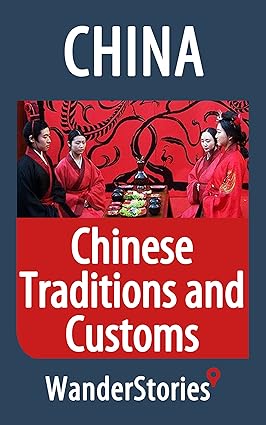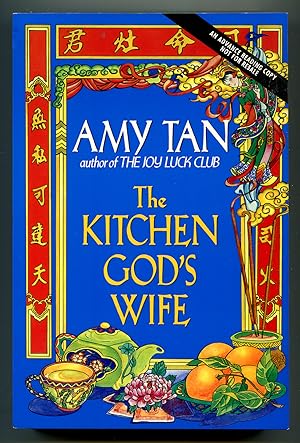articles
China Elevator Stories
How Contemporary Values Collide With Traditional Values in China
For many Western women, China is a country where traditional values prevail over contemporary values.
23/09/2024

Ruth Silbermayr
Author

When I first met my Chinese ex-husband, I had no idea that the decisions we made together would soon be made by his mother, rather than by the two of us. At the time, my ex-husband seemed like a kind man, which is why I agreed to marry him and have children with him.
Had I known his true nature—being a narcissist and psychopath who would take my children away from me so I could never see them again, give them to his mother to raise, and even attempt to kill me because I separated from him—I would have ended the relationship early on.
I believe everything happens for a reason, and I am not bitter about how things turned out. Of course, I’m not happy about it, but I know I cannot change what is beyond my control. Some things are within an individual’s power, while others are not.
In the book Chinese Traditions and Customs: A Travel Guide and Tour as with the Best Local Guide by WanderStories, one of the key Chinese traditions discussed is the emphasis on respecting elders. “In general, the oldest family members make the decisions, and the rest of the family is expected to follow them.”
In my marriage, this meant that after we had a baby and moved to my ex-husband’s hometown, his mother began making all of the decisions. Naturally, I resisted this unnatural hierarchy where she placed herself above me, leaving me voiceless. My efforts to assert myself were met with revenge so cruel it really made my head spin.
His mother was the primary decision-maker, while my ex-husband’s father occasionally contributed, though he wasn’t as dominant or authoritarian as she was. In my view, he was generally a more pleasant and friendly person. However, as the older male, my ex-mother-in-law considered him the head of the family, a convenient arrangement that allowed her to covertly position herself as the real decision-maker, while presenting him as the token leader.
One example of this hierarchy was a dinner with my ex-husband’s daye (his father’s eldest brother and the oldest living male in the family). He saw himself as the head of the extended family and expected everyone to accept a subordinate role. This pecking order often caused problems when it felt unnatural or unfair.
Not all family members accepted daye’s authority. Likewise, a marriage where your mother-in-law lives with your husband, takes on the role of mother to your children, and makes decisions that should be private between a couple, is doomed to fail.
In the same book, another tradition is highlighted: patrilineal family lines, where “the family line runs through the male. When someone enters the family through birth or marriage, it is always the man’s family they join.”
As for Chinese religion, many claim that most Chinese people have no formal religious affiliation. In some areas, Buddhism prevails, while in others, Islam is the dominant faith. However, in many regions, people are officially considered non-religious. The book describes Chinese people as being religious despite having no formal religious affiliation: “You may have heard it said that Chinese people have no religion, but this is not true. Traditional Chinese beliefs often amount to ancestor worship, and there is considerable pressure within the family to honor deceased ancestors, particularly male ancestors. Failing to do so is believed to bring bad luck, and male family members who fail to produce a male heir are thought to become volatile ghosts after death.”
While my ex-husband and his family followed these traditions, they would be officially recognized as having no religious affiliation in China. Whether these beliefs qualify as religion depends on how one defines religion. Some may argue that Taoist practices don’t constitute a formal religion, while others might see them as religious traditions.
Some regions, such as Guangdong, place a stronger emphasis on ancestor worship than others. My ex-husband’s family, for example, celebrated the Qingming Festival by visiting his grandfather’s grave each year, though they had no other formal celebrations related to ancestor worship.

Amy Tan, the daughter of Chinese immigrants and an author born in Oakland, California, is one of my favorite writers. She vividly depicts Chinese traditions, customs, and beliefs in her novels. Some of her most notable works include The Kitchen God’s Wife, The Joy Luck Club, and The Backyard Bird Chronicles. After reading one of her books, I quickly read the others because her storytelling is so engaging.
Amy Tan’s The Kitchen God’s Wife is named after Zao Jun (灶君), the Chinese Kitchen God, considered one of the most important domestic deities in China. The Kitchen God is believed to visit households during the ‘off year’ (小年), a week before Chinese New Year, and report to the Jade Emperor on the family’s behavior. The Jade Emperor then rewards or punishes the family accordingly. Chinese families traditionally make sacrificial offerings to the Kitchen God on the day of the ‘off year’.
Many Chinese customs are explained in Amy Tan’s books in ways that are accessible to Western readers. For instance, in Chinese Traditions and Customs: A Travel Guide and Tour as with the Best Local Guide, the custom of zuo yuezi (sitting the month) is discussed. This tradition, which many Western women in AMWF (Asian Male, Western Female) relationships may encounter after giving birth, varies from region to region but generally involves specific rules to aid a woman’s recovery after childbirth.
Some of these rules make sense, but others can be dangerous. For instance, a woman in Shanghai died from heat stroke because she wasn’t allowed to turn on the air conditioning during the hot summer. Outdated customs like not showering for a month after childbirth are also discouraged by Western doctors. My Chinese ex-husband insisted I follow some of these traditions, such as not brushing my teeth for a month after giving birth (which I ignored, of course).
Another unusual custom described in the book involves wrapping the umbilical cord in red paper and keeping it safe because if a rat eats it, the baby is believed to fall ill.
As for whether these traditions are still followed today, the book notes that change is occurring in modern China: “Women are gaining more say in family matters, and children are beginning to have control over their own futures. However, how modern a family is can vary widely, with urban areas like Beijing being more progressive, while rural areas maintain traditional practices.” Despite surface-level changes, many traditions are kept alive by older generations who are reluctant to give up their power and dominance.
Which Chinese traditions are you familiar with?